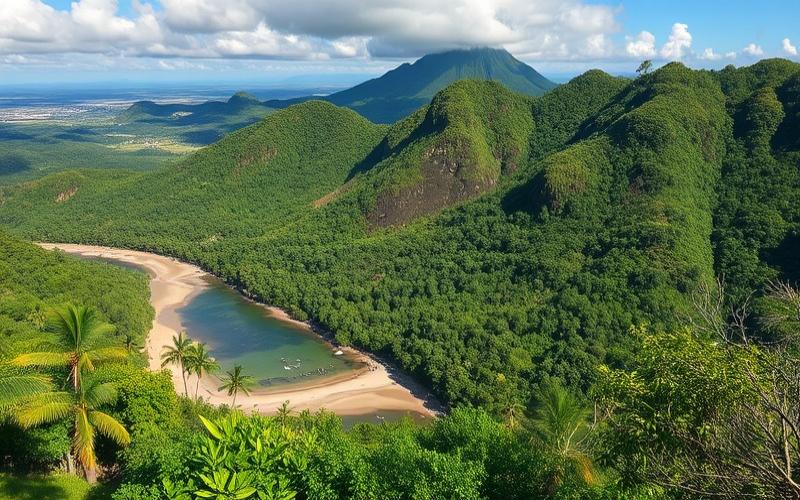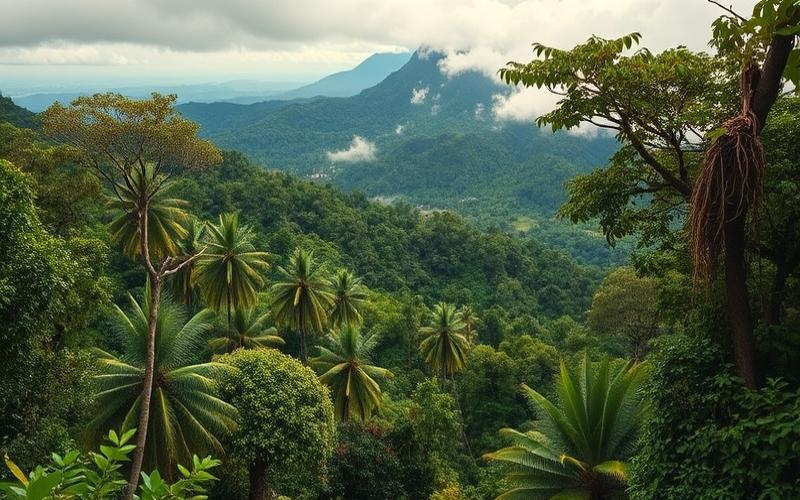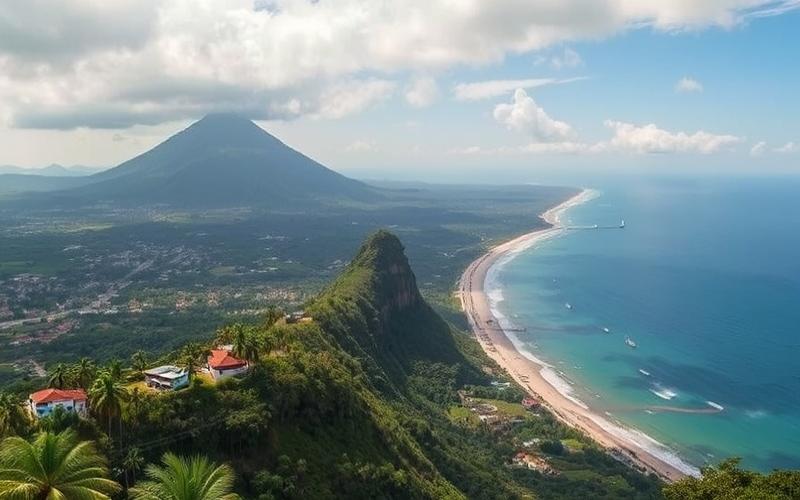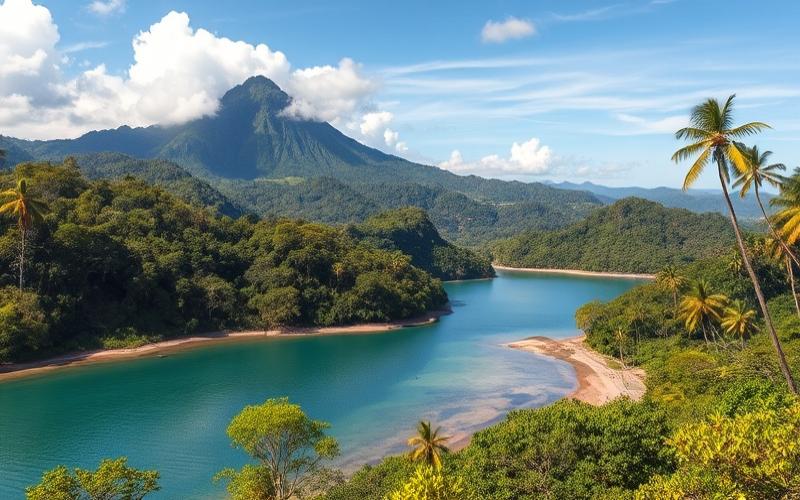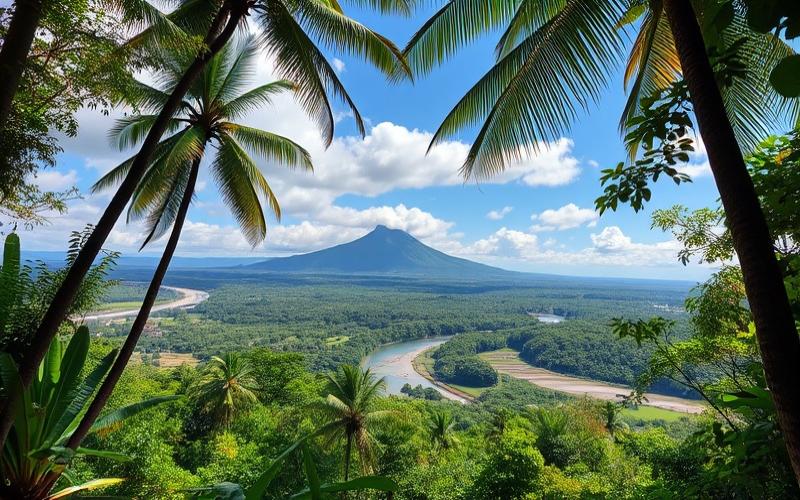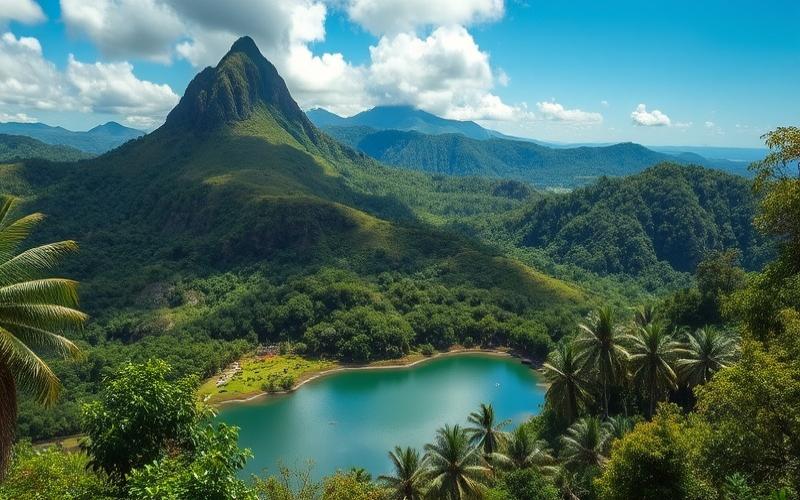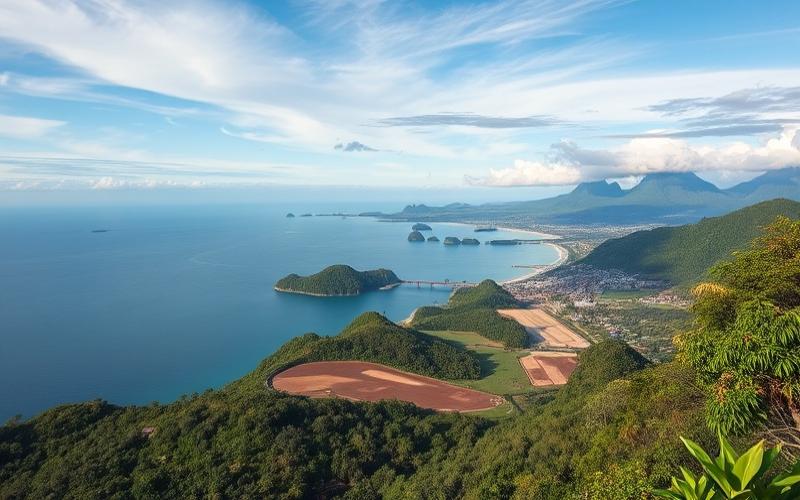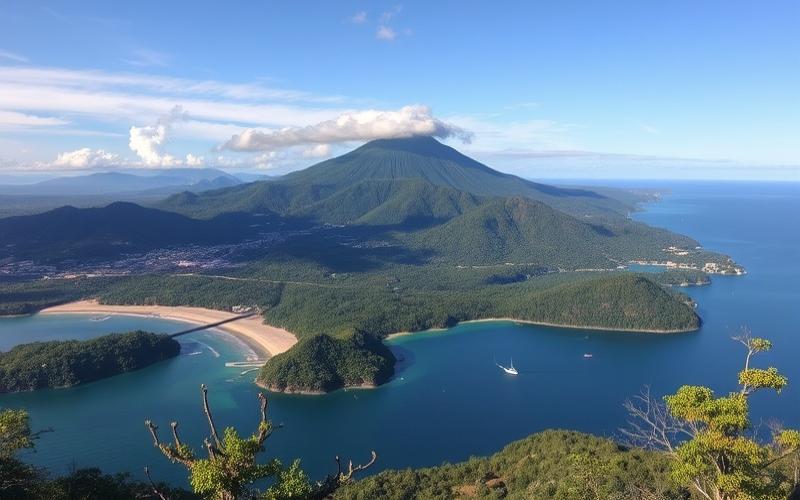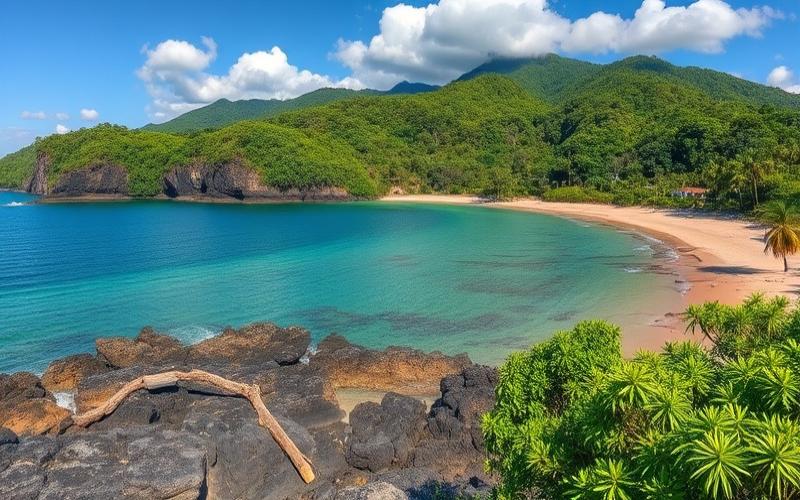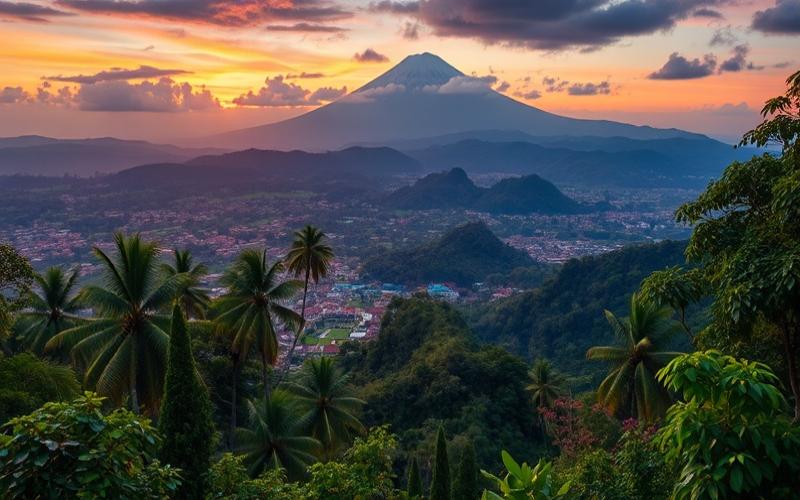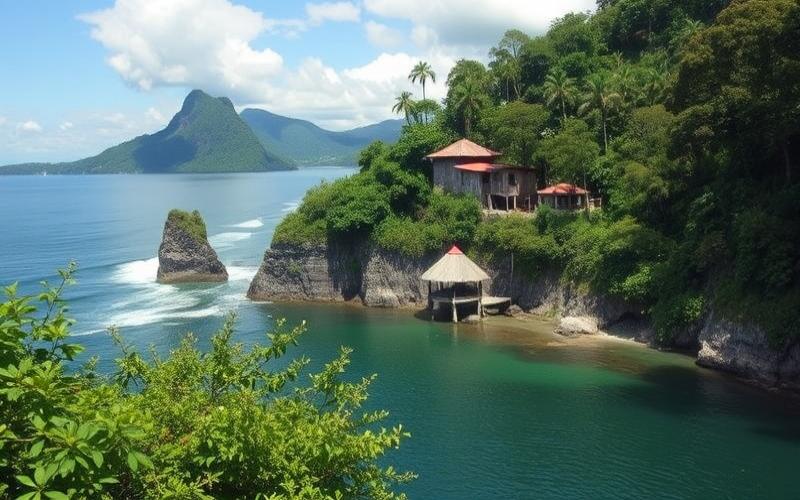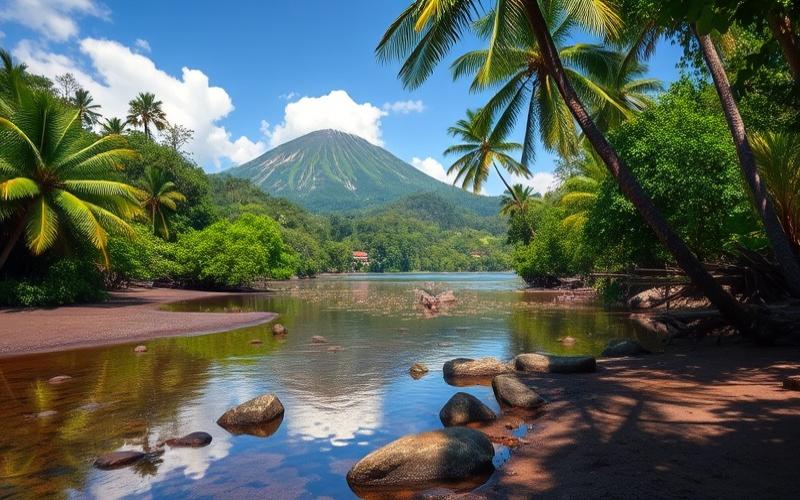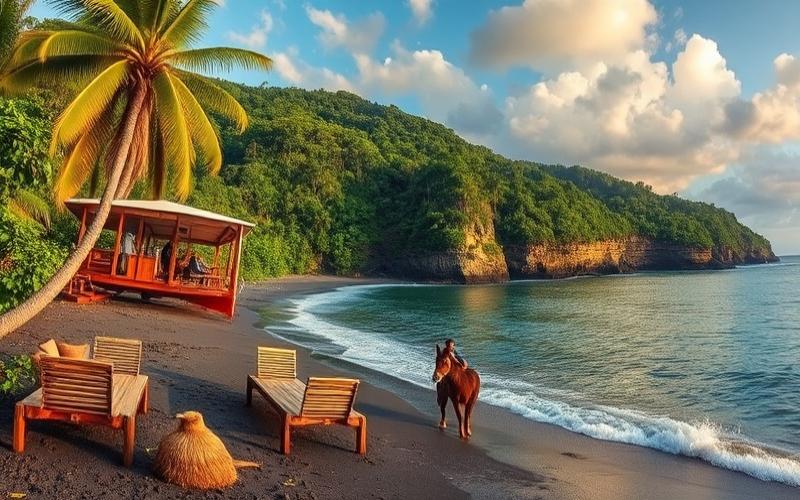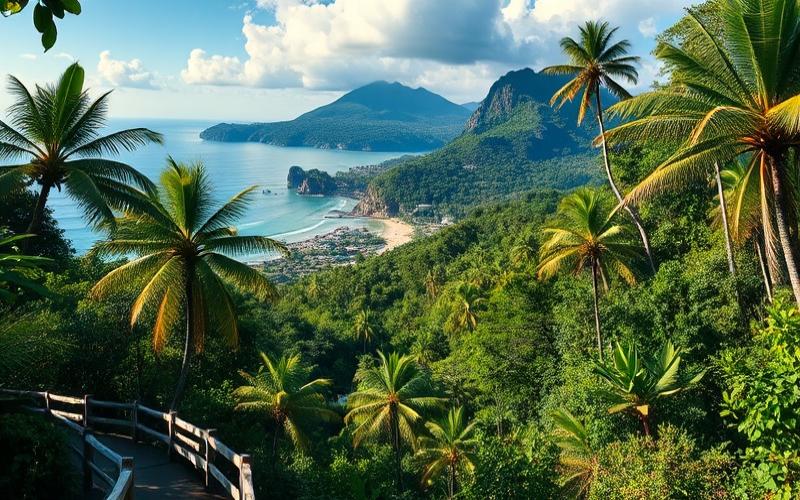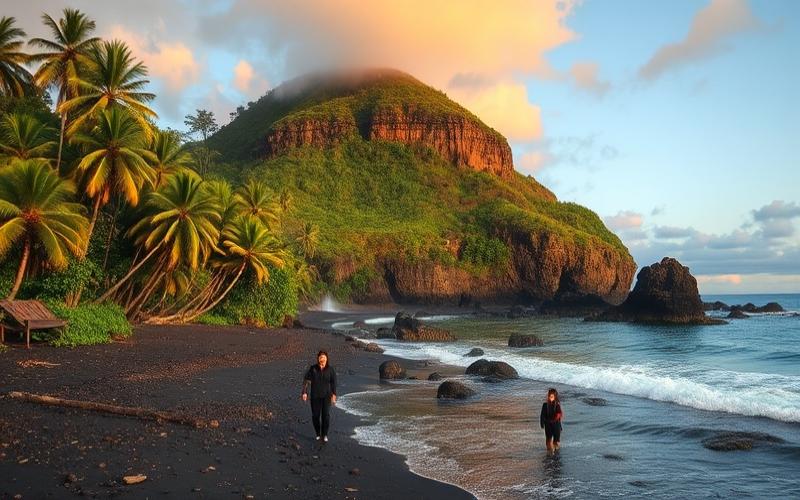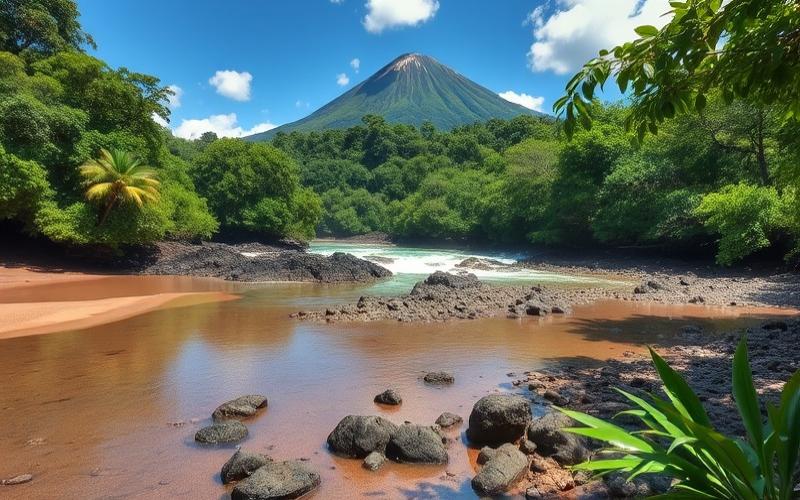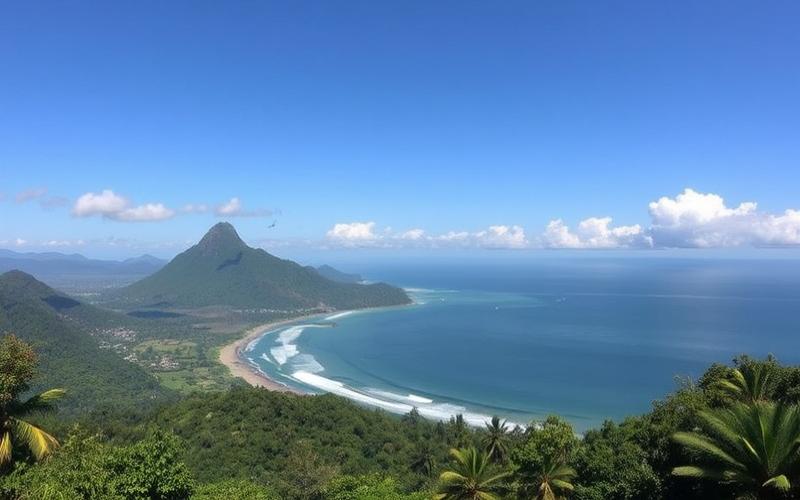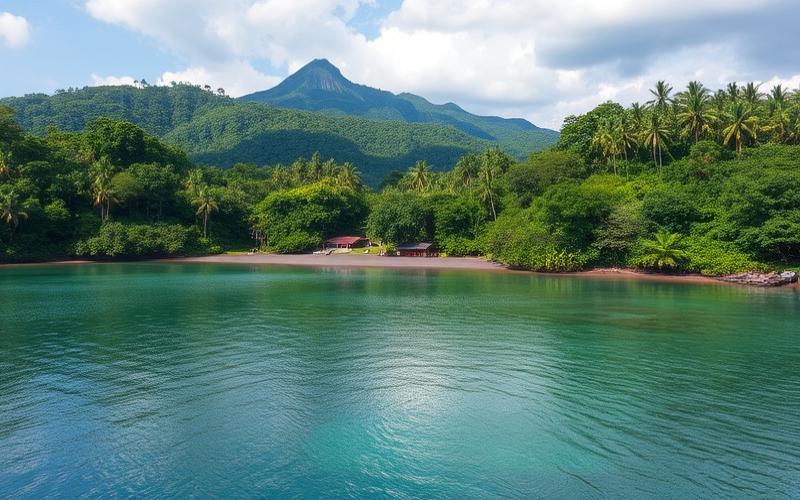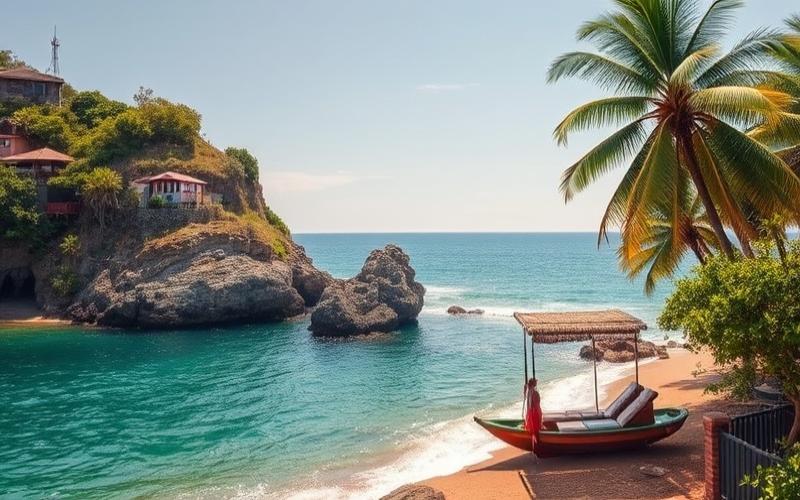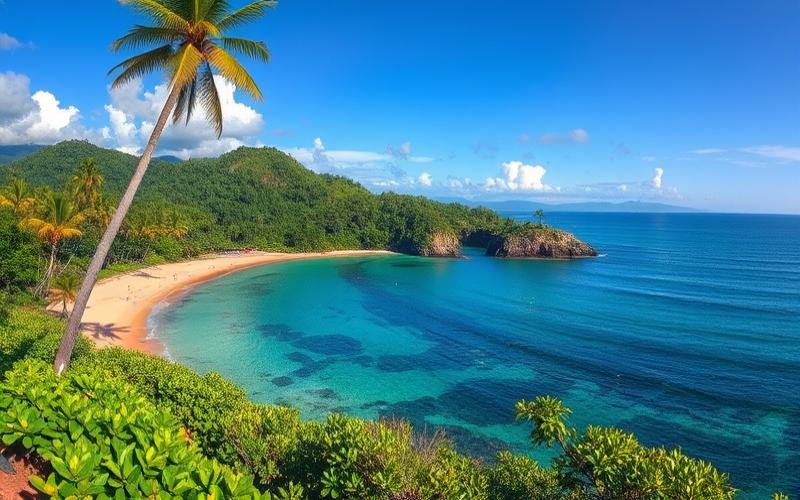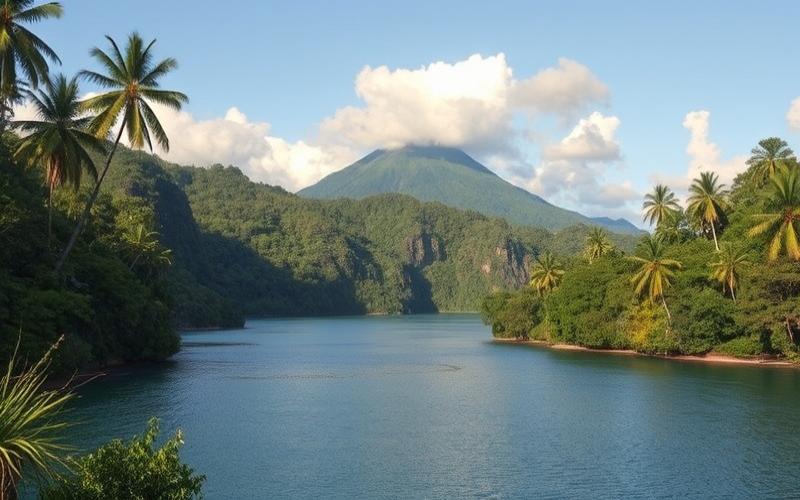
 Published on and written by Cyril Jarnias
Published on and written by Cyril Jarnias
Nestled Between the Pacific Ocean and the Caribbean Sea
Costa Rica is emerging as a premier destination for travelers seeking authentic and immersive experiences, transforming the vacation rental market into an exceptionally enticing opportunity.
In a context where sustainable tourism and ecotourism are gaining importance, this country welcomes visitors with stunning biodiversity, pristine beaches, and vibrant culture—all assets that attract thousands of vacationers each year.
The Vacation Rental Market in Costa Rica
For investors and property owners, the vacation rental market in Costa Rica offers not only a chance to explore a dynamic sector but also to positively contribute to the local economy while preserving the natural environment.
Discovering these opportunities means diving into a world where financial returns meet responsible and sustainable commitment.
A Lucrative Opportunity in Costa Rica
The growth of Costa Rica’s vacation rental market remains steady in 2025, driven by strong tourist demand and an increase in the expatriate population. Despite a slight drop in tourist arrivals in December 2024 (-0.5%), overall demand remains high, particularly in highly touristic coastal areas.
Attractive Regions for Investors
| Region | Main Assets | Rental Yield Trends |
|---|---|---|
| Tamarindo | Renowned beaches, nightlife, strong US/EU demand | Net yield between 6% and 10% |
| Jaco | Accessibility, surfing, tourist infrastructure | Net yield between 5% and 9% |
| Manuel Antonio | National park, wildlife, upscale clientele | Net yield between 7% and 11% |
- Tamarindo attracts with its cosmopolitan atmosphere and water activities.
- Jaco appeals to investors for its dynamism and proximity to the capital.
- Manuel Antonio combines nature and premium amenities, allowing for higher average rates.
Potential Rental Yields
- Net rental yield varies by location and property management, but it’s common to achieve between 6% and 11% in the most sought-after areas.
- The ADR (Average Daily Rate) fluctuates by season and region, with some premium sectors recording significant increases over the past year.
Local Regulations on Short-Term Rentals
- Vacation rentals are permitted, but it’s necessary to declare the activity to tax authorities.
- Some municipalities impose restrictions on noise, occupancy capacity, or commercial use in residential areas.
- Registration with the national tourism registry may be required to benefit from certain advantages.
Tax Benefits for Foreign Investors
- The tax system is considered attractive, with relatively low taxation on rental income.
- Foreign investors enjoy the same rights as nationals for real estate purchases.
- Possibility to optimize taxation based on the chosen legal structure (individual or company).
- The “rentista” program facilitates investor relocation and property management.
Impact of Tourist Popularity on Income
Costa Rica welcomes over 3 million visitors annually, ensuring a high occupancy rate year-round in major tourist areas.
The rise in the number of expatriates (+25% in residence applications over two years) also supports demand for furnished long-term rentals, diversifying rental income sources.
Recent Success Stories in Vacation Rentals
- In Tamarindo, investors who purchased apartments in 2022 report occupancy rates above 80% and a 12% increase in ADR over one year.
- In Manuel Antonio, a luxury villa purchased in late 2023 generated a gross yield of 10.2% in the first year thanks to optimized management and strong seasonal demand.
- In Jaco, some owners saw their property value appreciate by 8% in 2024 while maintaining an annual occupancy rate above 75%.
Key Takeaways:
- Market growth sustained by tourism and expatriation.
- Leading regions: Tamarindo, Jaco, Manuel Antonio.
- Attractive yields from 6% to 11% depending on location.
- Clear regulations and favorable taxation for foreigners.
- Recent successes demonstrating sector strength and diverse opportunities.
Good to Know:
Costa Rica has become a flourishing market for vacation rentals, with significant growth in recent years, particularly in attractive regions like Tamarindo, Jaco, and Manuel Antonio, which offer wide and attractive rental yields. These destinations benefit from the country’s increased popularity as a tourist destination, amplifying income opportunities for investors. Local regulations are accommodating for short-term rentals, with tax benefits available for foreign investors, making the market even more appealing. For example, an investor recently purchased a villa in Tamarindo, achieving an 8% yield in just one year. Combining a favorable regulatory framework with steady tourist influx, Costa Rica positions itself as a lucrative opportunity for those looking to capitalize on the booming vacation rental sector.
Capitalize on Vacation Rental Advantages
Costa Rica stands out as a preferred destination for vacation rentals thanks to a rare combination of natural diversity, attractive climate, and economic opportunities for property owners.
Main Advantages of Vacation Rentals in Costa Rica:
- Diversity and Natural Beauty
- White and black sand beaches, ideal for surfing, swimming, or relaxation.
- Lush tropical forests, home to exceptional biodiversity: monkeys, sloths, tropical birds, etc.
- Spectacular volcanoes, including Arenal and Irazú, offering unique landscapes and varied outdoor activities.
- Year-Round Tropical Climate
- Pleasant temperatures and consistent sunshine, allowing for outdoor activities regardless of the season.
- Major asset for attracting travelers throughout the year, even during off-seasons in other destinations.
- Profitability and Economic Benefits for Owners
- Sustained and growing tourist demand, with over 3 million annual visitors.
- High rental income, especially in coastal and tourist areas where demand is strong year-round.
- Opportunity to capitalize on high occupancy while other markets experience a decline in tourist flow.
- Favorable taxation and regulatory framework conducive to rental investment.
- Continuous appreciation of real estate value, enhancing long-term profitability.
- Flexibility and Freedom
- Freedom for the owner to use their property according to personal needs (occasional occupancy, resale, etc.).
- Easy adaptation to tourist market fluctuations through rate and rental duration adjustments.
- Less commitment than long-term rental, offering more management and optimization options.
- Cultural Richness and Warm Welcome
- Renowned hospitality of Ticos (Costa Rican residents), creating an authentic and friendly experience for visitors.
- Diversity of traditions, local cuisine, festivals, and cultural events enriching tourists’ stays.
- Added value that fosters international client loyalty and increases the appeal of vacation rentals.
| Main Advantage | Summary Description |
|---|---|
| Natural Diversity | Beaches, tropical forests, volcanoes, unique biodiversity |
| Climate | Tropical, pleasant and consistent year-round |
| Economic Profitability | High income, steady demand, favorable taxation |
| Flexibility | Usage freedom, market adaptation |
| Cultural Richness | Warm welcome, local traditions, rich experience |
To Remember:
Costa Rica offers an exceptional setting for vacation rentals, combining spectacular nature, stable climate, economic opportunities, and authentic cultural experience. This context promotes continuous tourist appeal and sustainable profitability for owners.
Good to Know:
Vacation rentals in Costa Rica present numerous advantages that can be leveraged by owners seeking to maximize their real estate investments. Thanks to its splendid natural diversity, including pristine beaches, lush tropical forests, and majestic volcanoes, this country attracts thousands of tourists each year. The constant tropical climate ensures continuous tourist activity, even during off-seasons elsewhere, promising stable income. Compared to long-term rentals, vacation rentals offer more flexibility, allowing for price and condition adjustments based on demand. Additionally, the warm welcome of Ticos and the richness of local culture charm and retain visitors, enriching their experience and increasing their interest in this type of stay. Finally, the possibility of benefiting from additional income while diversifying stays, particularly by listening to traveler expectations regarding services and comfort, makes this avenue especially attractive for property owners.
Optimize Your Rental Property Management
Optimizing rental property management in Costa Rica involves a combination of strategic practices, technological tools, and special attention to the varied expectations of international tourists.
Collaboration with Local Managers
- Relying on experienced property managers enables:
- In-depth knowledge of the local market (seasonality, tourist profiles, regional events).
- Efficient coordination of cleaning, maintenance, and personalized welcome.
- Continuous optimization of occupancy rates through an extensive local network.
Dynamic Rental Price Determination
- Regularly analyze rates charged by comparable properties in your area.
- Implement seasonal pricing:
- High season (December to April): usual price increase between 20 and 30%.
- Low season (May to November): adjust your rates downward to remain competitive or offer attractive promotions.
- Use dynamic pricing software that automatically adjusts rates based on real demand, local events, and competition.
| Season | Example Rate 2-Bed Villa Ocean View | Typical Variation (%) |
|---|---|---|
| High (Dec.-Apr.) | $150–$300/night | +20–30 % |
| Low (May-Nov.) | $100/night | — |
Tip: Also offer targeted discounts to fill the calendar during off-peak periods or to retain long-term clients.
Use of Digital Tools
- Automate management with:
- Specialized software to centralize reservations, payments, and multi-platform calendars.
- Automated sending of pre-arrival/departure instructions via email or SMS.
- Digital management of cleaning/maintenance via mobile app shared with your local team.
- Integrate a dynamic system allowing real-time occupancy tracking, facilitating quick adjustment to sudden fluctuations.
Concrete automation examples:
– Platforms like Eviivo allow automatic synchronization between Booking.com, Airbnb, and Expedia while managing secure payments and integrated customer messaging.
Value-Added Through Additional Services
To enhance guest experience and increase their satisfaction:
- Offer private airport/accommodation transfers
- Provide local breakfast baskets or personalized experiences
- Install reliable high-speed Wi-Fi
- Make multilingual tourist guides available
These services are particularly appreciated by a diverse international clientele seeking comfort, security, and authenticity. They often justify a higher pricing positioning.
Essential Legal & Regulatory Aspects
Non-exhaustive list to strictly adhere to:
Local Obligations
- Mandatory registration with Costa Rican tax authorities
- Assignment of a unique tax number (“cédula jurídica”)
- Regular declaration of rental income
Health & Safety Standards
- Comply with fire/evacuation standards defined by the relevant ministry
- Recommended civil liability insurance
Labor Law
- Correct declarations if you employ local staff (cleaning/security)
Ignoring these obligations exposes you to heavy fines or even temporary suspension of rental activity.
Key Points for Success:
- Dynamically adjusted rates based on seasonality/real demand;
- Maximum automation via proven digital tools;
- Close collaboration with reliable local experts;
- Enriched offering meeting varied needs of global tourists;
- Strict respect of Costa Rican legal framework to ensure longevity & entrepreneurial peace of mind.
Good to Know:
To optimize your rental property management in Costa Rica, it’s crucial to collaborate with local property managers, familiar with varied tourist expectations and seasonal fluctuations. A good practice is to dynamically adjust rental prices based on demand, with high-season periods like Christmas and Easter typically allowing for higher prices. Using digital platforms and tools not only facilitates reservation tracking but also effective communication with tenants. Offering additional services, such as free airport transfers or personalized tourist guides, can significantly improve customer experience and increase their satisfaction. Finally, ensure compliance with local legal and regulatory standards to avoid legal issues, keeping in mind that regulations on short-term rentals vary by region. For example, some popular beach areas may have strict requirements regarding the declaration and taxation of rental income.
Understanding Local Regulations for Success
To rent a property for vacation rentals in Costa Rica, it’s essential to comply with several specific legal and regulatory obligations. Non-compliance with these requirements exposes you to administrative and tax penalties.
| Requirement | Description | Practical Details |
|---|---|---|
| ICT Registration | Mandatory registration with the Costa Rican Tourism Institute (ICT) | Law No. 9742, Decree No. 43154 since 2021. |
| Tax Permits | Registration with the Tax Administration (Hacienda) | Mandatory for all, including foreign owners. |
| Electronic Invoicing | Mandatory issuance of electronic invoices | Use of a government-approved system. |
| Regular Tax Declarations | Periodic declaration of rental income | Meet local tax deadlines. |
Key Points on Taxation
- Income from vacation rentals is subject to local VAT (13%).
- This tax must be charged for each reservation, even if payment was made before a legislative change.
- Starting in 2026, all information will be automatically shared with various authorities under the multilateral agreement on digital information exchange.
Specifics for Foreigners
- Obtaining a Special Identification Number for Foreigners (NITE) is mandatory.
- All these obligations also apply to non-resident owners.
Safety and Property Conditions
List of main safety requirements:
- Adhere to the owner’s or property manager’s internal regulations.
- Comply with standards imposed by the homeowners’ association or local municipality.
- Ensure the property meets minimum standards: operational fire extinguishers, clearly marked exits, secure electrical equipment.
Local Variations
Notable differences exist between major tourist areas and more isolated regions:
| Popular Tourist Area | Rural or Less Touristic Region |
|---|---|
| Strict regulation; frequent checks | Variable enforcement; sometimes increased tolerance |
| Enhanced presence of ICT inspections | Fewer inspections but unchanged obligation |
| Close collaboration with authorities | Sometimes slower administrative procedures |
In some highly sought-after coastal municipalities like Tamarindo or Jacó:
- Inspections are frequent,
- Additional rules related to noise or waste management may be imposed.
In less touristic rural/mountain regions:
- Regulations remain applicable but enforcement may be less rigorous,
- Direct access to administrative services may be more complex; allow more time for each administrative procedure.
- Prepare all your documents before any procedure: land titles, updated cadastral plans, proof of home insurance.
- If possible, hire a local lawyer specialized in real estate/tourism law: they can expedite your procedures with ICT and Hacienda.
- Always keep a digital/scanned copy of official exchanges with Costa Rican administrations.
Good to Know:
To succeed in the vacation rental field in Costa Rica, it’s crucial to thoroughly understand local regulations. Owners must obtain a tourist operation license, often issued by the Costa Rican Tourism Institute, and must also comply with specific safety standards, including installing fire extinguishers and smoke detectors in accommodations. Tax-wise, income from these rentals is subject to income tax and sales tax, with rates that may vary by region. Regulations can differ significantly between popular tourist areas like Tamarindo and more isolated regions, where laws may be less strict but still require vigilance. Navigating the bureaucratic system can be facilitated by consulting the government website or collaborating with a local lawyer specialized in real estate law. Concrete examples include the obligation to declare rental properties to local authorities to avoid substantial fines, underscoring the importance of staying informed and respecting current legislation.
Disclaimer: The information provided on this website is for informational purposes only and does not constitute financial, legal, or professional advice. We encourage you to consult qualified experts before making any investment, real estate, or expatriation decisions. Although we strive to maintain up-to-date and accurate information, we do not guarantee the completeness, accuracy, or timeliness of the proposed content. As investment and expatriation involve risks, we disclaim any liability for potential losses or damages arising from the use of this site. Your use of this site confirms your acceptance of these terms and your understanding of the associated risks.

